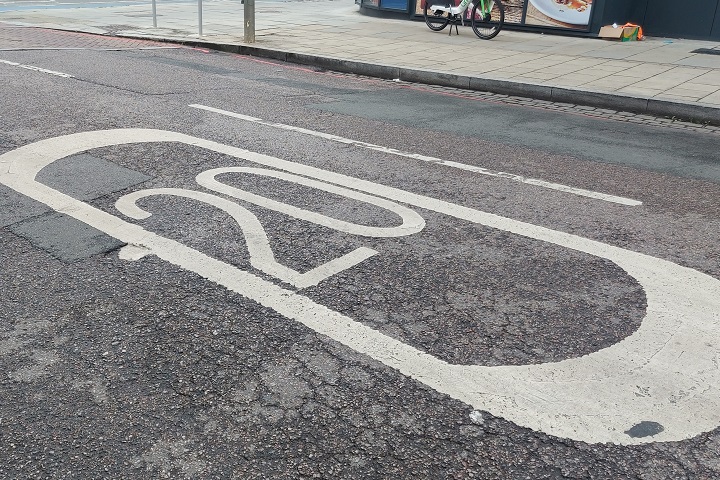
The new transport secretary says decisions on 20mph zones and other road safety schemes should be taken by local communities rather than the DfT.
According to BBC News, transport secretary Louise Haigh MP, told the Streets Ahead podcast: “Local authorities will have my full support to roll out schemes.”
Louise Haigh joined presenter Laura Laker on Streets Ahead to discuss the future of active travel in the UK, including the role of walking and cycling in tackling public health and climate challenges. During the interview, she outlined her vision for a national integrated transport strategy that prioritises active travel, and discussed “unprecedented funding”, as well as her support for councils implementing Low Traffic Neighbourhoods (LTNs) and 20mph schemes.
Earlier this year, the DfT published draft statutory guidance on LTNs, focusing on the importance of securing local support. The guidance was informed by research carried out by Ipsos, and aims to ensure that LTNs are only introduced where there is ‘clear local support’ for them and where they are ‘well designed and do not cause undue problems for drivers, emergency services or other road users’.
According to BBC News, Ms Haigh wants to move away from the “culture wars” of the previous government, which, she said invested heavily in active travel during the Covid pandemic but had then taken “the money away again”, leaving many local authorities “in limbo and paralysis”.
Ms Haigh accused the previous government of ‘actively working against’ local authorities by not allowing them to roll out 20mph zones or LTNs.
Both the RAC and 20’s Plenty for Us support the principle of local authorities deciding on schemes in their area.
Simon Williams, spokesperson for the motoring organisation, said: “Ultimately, local authorities are best placed to decide which roads are most suitable for 20mph limits, and where Low Traffic Neighbourhoods (LTNs) make the most sense.
“However, we think there’s a good argument for central government to provide councils with refreshed, crystal-clear guidance on the implementation of both, to avoid the sorts of problems that have cropped up in different parts of the country.
“For instance, LTNs should have strong community support and the impacts on users of motorised vehicles, especially those who need to drive for work, should be properly considered alongside all other road users.
“When it comes to 20mph limits, councils should ensure the roads chosen are really appropriate – for instance, those in heavily built-up areas or close to schools – and avoid chopping and changing guidance as we’ve seen happen in Wales.”
Anna Semlyen, director of 20’s Plenty for Us, said: “20’s Plenty for Us is pleased that transport secretary is vocally supporting the presumption of 20mph by local authorities, where which roads are excluded is decided at local authority level. She says councils who want to introduce 20mph limits will have her ‘support’.
“Nearly 30 million people already live where 20mph is normal in the UK, including in Wales, and central London and many London Boroughs.
“20mph supports the climate, clean air, quieter noise levels, it helps people sleep well and reduces stress. It increases productivity from fewer people off sick, economic regeneration, fuel savings and less acceleration and braking is better for reducing tyre and road wear.”
Data published earlier this month shows a fall in casualties on 20mph and 30mph roads in Wales in the first three months of 2024, after the nation’s default 20mph speed limit – the first in the UK – was introduced in September 2023.
Meanwhile in July, the Welsh Government has published guidance to support local councils when making decisions on local speed limits.
Fraser – you’re a road safety professional (I presume) and you care more (mistakenly, I might add) about your car than the fact casualties are down 30% in Wales in the first six months. What’s wrong with you, and the people who upvoted your comment?
The road safety profession should be celebrating what Wales has achieved and pushing for lower speed limits across the rest of the UK, not carping about it.
Philip Jones, Stourbridge
0
Simon Williams talking sense. Anna Samlyen? Not so much. I’m not sleeping better … my vehicle doesn’t consume less fuel … zones encourage more acceleration and braking … at least, that’s my understanding. There ought to be a law against pressure groups misleading the public.
Fraser Andrew, STIRLING
--1